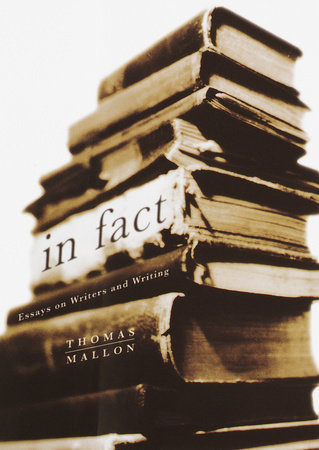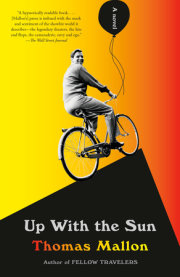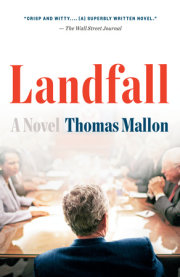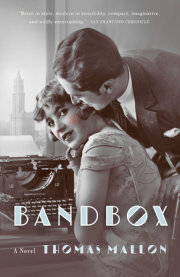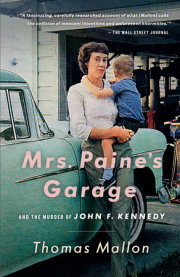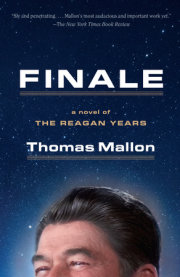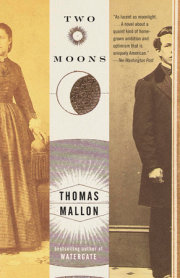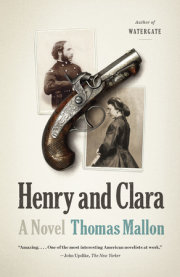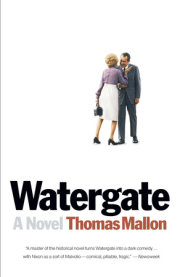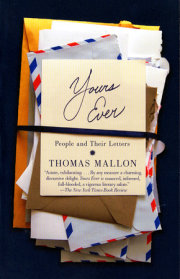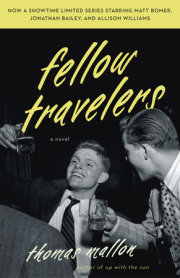Introduction
It says something about the specialized repetitions of academic life that a journal called
Joseph Conrad Today can be continuously published. And it says something about my days as an assistant professor that, twenty years ago, I was writing for it. Twentieth-century British literature was my field, and like most of my colleagues in pursuit of tenure at Vassar, I was accumulating "publications" in periodicals read chiefly by the other people writing in the same issue.
William W. Bonney's
Thorns and Arabesques: Contexts for Conrad?s Fiction was the Johns Hopkins University Press book I had to review for Volume VI, nos. 3?4 of
JCT. The following sentence is typical of the book?s language, an idiom spoken by the academic species one level above mine?that is, associate professors in pursuit of promotion: ?In these instances, a seemingly meaningful logical surface is subverted by the ontic vacancy of raw diversity established through a plurality of multiplicative inverses, to which the very idea of orderly and sequential monogenesis is indeed alien.?
Alien, indeed. "If Mr. Bonney will forgive me," I wrote after closing his quotation, "I will make my point in a mere eight syllables: no one should write like this, ever." The review's last sentences read, at this remove, like an urgent note to myself: "I fear we have entered a kind of commentators' My Lai. We have reached the point where we are destroying language in order to explain it . . . squeezing out the last humble Anglo-Saxon syllable from a critical prose that is rapidly moving beyond the Latinate and towards the Martian." I was telling myself to look for another job.
In a roundabout way that's what I began to do, by reviewing for regular newspapers and
National Review?a magazine viewed by my colleagues as not only politically suspect but positively flashy?and by publishing a study of diaries (A Book of One's Own, 1984) that was a sort of belletristic curiosity. By the time I sat on the English department's hiring committee in the fall of 1987, the madly theoretical work of professors like Bonney?who scorned critical factors like biography as "extralinguistic presences"?had already given way to a preoccupation with nothing but the social and historical circumstances of literature. Issues of "race, class and gender"?invoked so often and with such automatic simultaneity that they seemed to be one angry word, raceclassgender?were fast becoming the only avenues of inquiry into literary "texts." (Talk of "books" disappeared with the ditto machine and card catalog.) And yet the language employed in these new political pursuits, evident in the dissertation chapters presented by applicants to the hiring committee, was just as pretentiously ugly as the lingo that had made the "theorists," such a short time ago, feel so smart.
By '88 I was publishing fiction along with literary journalism, and I wanted out. I gave up tenure and taught part-time for a few years, during which, I must add, I was always treated well, even fondly, like some back number spared the bindery and allowed to keep its torn cover. Just before I left Vassar for good, several months before my fortieth birthday in 1991, I gave a whole course on Mary McCarthy, the college's most famous alumna and the subject, years before, of my own undergraduate honors thesis at Brown. Mary (eventually a friend) has been without question the most enduring influence on my life as a writer. In fact, it was probably a volume of her essays,
On the Contrary (1961), that made me want to become one at all.
Mary's glamour and reputation for sexual daring (Vassar took years to get over The Group) left some who read her criticism surprised by its essentially conservative nature. Her imagination was premodernist, and despite that twentieth-century academic specialty, so mine has always been. In all the years I was teaching Joyce and Woolf, my heart and mind were actually closer to Trollope and Thackeray. McCarthy's essay "The Fact in Fiction"
?she was all for it?spoke forcefully to me when I read it thirty years ago, and I'm not surprised that my own fiction eventually settled into the precinct of the historical novel. Like Mary, I began publishing fiction only after I'd written a good deal of criticism and argument, and for better and worse the developmental sequence is evident: in my novels, narrative comes less easily than the construction of a character's background or commentary on his motives. Reluctant to let go of the essayist's prerogatives, I have never written a novel outside the third person. Even amongst the diarists in
A Book of One's Own, practitioners of the ultimate first-person form, I always leaned toward the panoramic chroniclers, the ones who looked outward upon their times more than inward upon their lives. There's an element of Mary here, too: she once declared a resolute preference for sense over sensibility, and in my own essay "Enough About Me," grouped in the "Biographical" section of this book, I find myself writing this about a clutch of modern memoirs very different from McCarthy's Memories of a Catholic Girlhood: "I would rather end the day having had one clear thought than one strong feeling. . . ."
If I regret my long detour into college teaching?and I do; it's the vocation of first, wrong choice for most writers?I cannot say I'm sorry to have spent five years acquiring a Ph.D. My 1970s graduate education at Harvard (made sport of in my first novel,
Arts and Sciences) was, at all events, staunchly behind the times. In Cambridge in those days, the study of literature was, more than anything else, the study of literary history. We emerged nearly immaculate of Professor Bonney's textual theory, handicapped for the job market, but in my case at least somewhat better equipped to write the sort of fiction and criticism I went on to produce during and after my long period of teaching.
More than half the pieces in this book first appeared in Gentlemen's Quarterly, where I got the job of literary editor in 1991, shortly after writing a piece for the magazine, included here, on John O'Hara, perhaps the most fact-heavy writer of fiction produced by America in modern times. I took to GQ immediately?no committees, for one thing. I bought the fiction, commissioned essays and eventually took over the books column from the redoubtable Mordecai Richler. As he was making the change, Art Cooper, GQ's editor-in-chief, asked me what I thought the most important trait a book critic could have. I said skepticism; hence the column's new eponymous rubric: "Doubting Thomas." Even so, the column's dominant mode turned out to be one of qualified appreciation, as shown by the sixteen pieces in "Working Writers," almost all of them about novelists, from Ward Just to Will Self, whose works are set in a career context.
I've sorted the other two dozen or so essays into four sections. The retrospective group "Off the Shelf" begins with an early, long piece on Siegfried Sassoon (the English poets of World War I were my particular academic specialty) and moves on to reconsider a trio of hearty "light-heavyweights" in American fiction: O'Hara, Sinclair Lewis, and John Dos Passos. Along with some brief, more or less appalled pieces on Truman Capote and H. L. Mencken are two short ones on McCarthy and a longer sort of literary travel essay about New Orleans in the 1960s.
I have always been drawn to literature's suburbs (those diaries) and minor keys (I used to describe my dissertation subject, Edmund Blunden, as ?a major minor poet?); this book's third section, "On the Fringe," is an assortment of pieces on fan mail, plagiarism, obituary, indexes, handwriting, and book tours.
"Biographical" begins with the first sizable essay I ever published, "A Boy of No Importance," an account of my search for what happened to Edward Shelley, the office boy at Oscar Wilde's publishers and a minor (again) character in the great drama of Wilde's trials. This exercise in detection has links, I think, to the two much-later pieces that follow, in which inference goes to work on a slender trove of incidentals: "Held in Check" attempts to assess aspects of my father's character from the box of cancelled checks he left behind after his death, and "Sanctified by Blood" tries something similar with the contents of Abraham Lincoln's pockets on the night he was murdered. "Life Is Short" praises the tradition of brief biography from Plutarch to the present, while "Double Dutch" offers two cheers for perhaps the most reviled life story of our time, Edmund Morris's peculiar re-creation of Ronald Reagan.
Morris's half-invented history provides passage to the book's last main section, which includes commentary on my own experience with the historical novel, and appraisals of that genre as practiced by such contemporaries as Jane Smiley and Andrea Barrett. The other "Historical Fictions" under consideration here are the Kennedy assassination as reimagined by Norman Mailer; the evolution of American political photography; the conspicuous dearth of imaginative literature prompted by the moon landing; and the tumult of the late-'60s campus revolution as I might be inclined to reconstruct it in a novel.
One might append the subtitle of that last piece, "A Minority Report," to this whole collection, whose prevailing moods and enthusiasms remain more retroverted and conservative than the academic and media cultures in which they were experienced. The actual title comes from what rereading makes me realize is my own most frequently used prepositional phrase. In fact is what rhetoricians call a "transitional marker"?words employed to announce a second sentence or phrase that, with a certain eagerness, elaborates upon the first. I notice that even in this short preface I could go barely more than four paragraphs without it. But as I look at them on the title page, the two words seem not so much a connective device as the single atmospheric element in which I've lived my life as a writer, even the "imaginative" part that produces novels. Those books have risen from the actual and verifiable world, its history and geography intact. The further anyone's fiction strays from those things, the less it interests me. (I cannot conceive of a phrase in which the adjective condescends to the noun more than happens in "magical realism.") Similarly, the further criticism entered its university echo chamber of jargon and abstraction, the more I clamored to flee it. The "real world"?a phrase that academics use with uncommon accuracy to indicate what's over the walls?is the one I had to get into if I was to have any chance as a writer and, I'm long since convinced, a reader.
Copyright © 2001 by Thomas Mallon Introduction. All rights reserved. No part of this excerpt may be reproduced or reprinted without permission in writing from the publisher.

